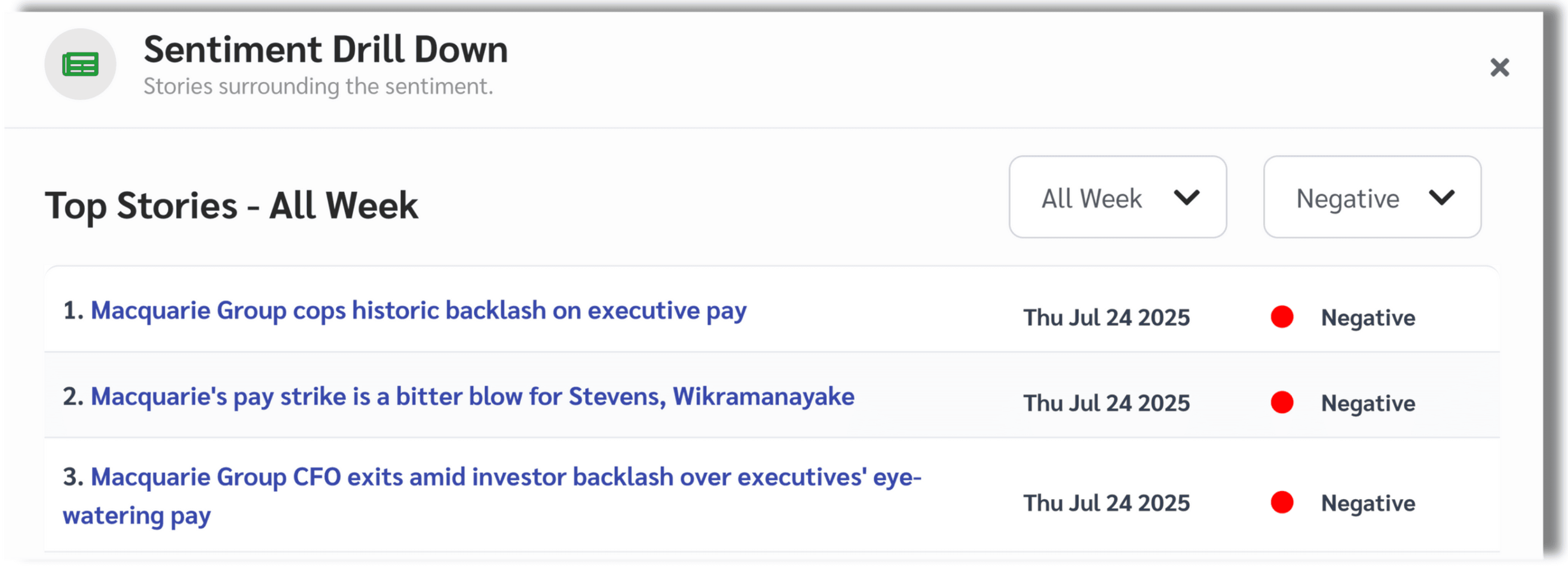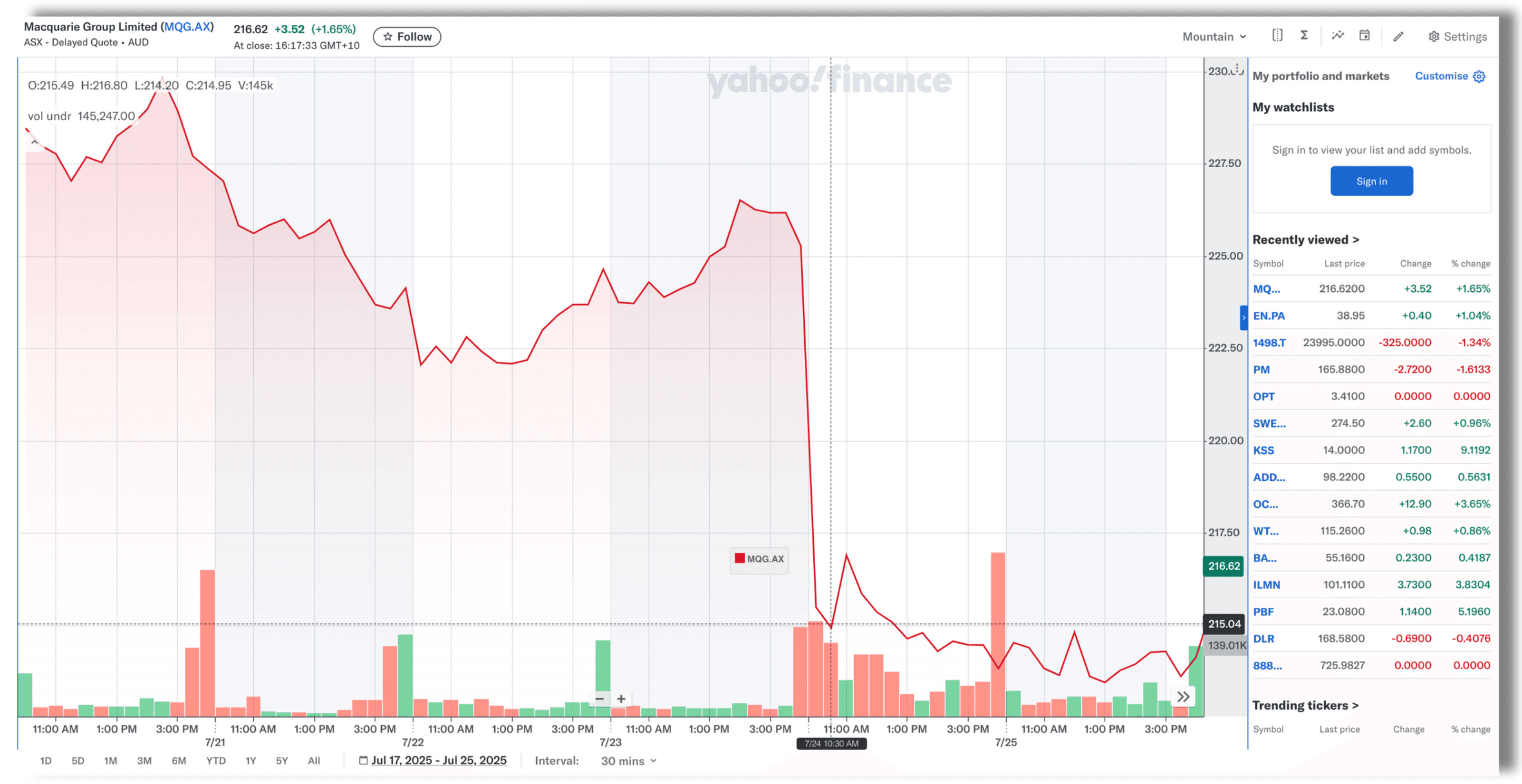Strong corporate governance is a cornerstone of long-term shareholder value - when it falters, trust erodes and markets take notice.
For investors, governance is not just a compliance exercise - it is a direct indicator of risk management and corporate culture.
The recent shareholder revolt at Macquarie Group [ASX: MQG] is part of a growing wave of activism targeting not only executive pay but also how boards respond to broader ESG concerns.
This episode shows how quickly governance missteps can escalate into financial and reputational damage.
What happened?
At its recent AGM, Macquarie Group [ASX: MQG] faced its first-ever "first strike" on executive pay, with more than 25% of shareholders rejecting the remuneration report.
The backlash followed critical recommendations from two major proxy advisors, who argued that Macquarie Group [ASX: MQG] failed to meaningfully cut executive pay after regulatory actions against the firm.
The result triggered an immediate market reaction: shares fell more than 5%, and Group CFO Alex Harvey announced his departure amid mounting pressure.
Governance concerns did not end there. 35% of shareholders, including the New York City Comptroller, Legal & General, and Schroders, backed a climate-related resolution demanding greater disclosure on fossil fuel exposure and alignment with net zero commitments.
The data behind the discontent
Integrum’s governance dataset had already flagged Macquarie Group's [ASX: MQG] weak performance on pay alignment before the story broke.
The metric ‘Pay - appropriacy of total packages’ measures how proportionate total executive pay is compared to the company’s scale,
sector, and performance.
Macquarie Group [ASX: MQG] score an overall score of 0.5 out of 4 for this sub-metric, signalling that executive remuneration was excessive compared to the size of the company.

Source: Integrum ESG Platform (dashboard.integrumesg.com), Macquarie Group, Governance Metrics
Investors who noted this data point would therefore not have been surprised by the controversy to come.

Source: Integrum ESG Platform (dashboard.integrumesg.com), Macquarie Group, Real-Time ESG Sentiment Data

Source: Yahoo Finance, Macquarie Group Limited (MQG.AX), July 18 - July 25 Share Price Chart
On and before July 24th 2025, our real-time sentiment tracker detected a sharp rise in negative ESG coverage as the shareholder revolt began to take shape - a trend that closely tracked the decline in Macquarie’s share price.
Lessons for Investors
Excessive or poorly justified pay can signal deeper governance weaknesses - and when those weaknesses surface, they can trigger both reputational harm and market losses.
This case highlights how governance warning signs often emerge well before a public flashpoint.
With credible and actionable ESG data, investors can mitigate risk by:
- Embedding governance metrics into every stage of due diligence - and not limiting analysis to financials
- Monitoring real-time ESG sentiment to detect early signs of shareholder unrest
- Engaging proactively with investee companies before issues escalate into public votes and price shocks
Anticipating these signals isn’t just good risk management - it’s a competitive advantage in protecting and growing capital.
Macquarie Group's [ASX: MQG] first strike sends a clear message: executive pay must reflect performance and align with stakeholder expectations.
Investors equipped with forward-looking governance data and real-time monitoring are better positioned to anticipate these flashpoints - and act decisively before trust and value erode.
